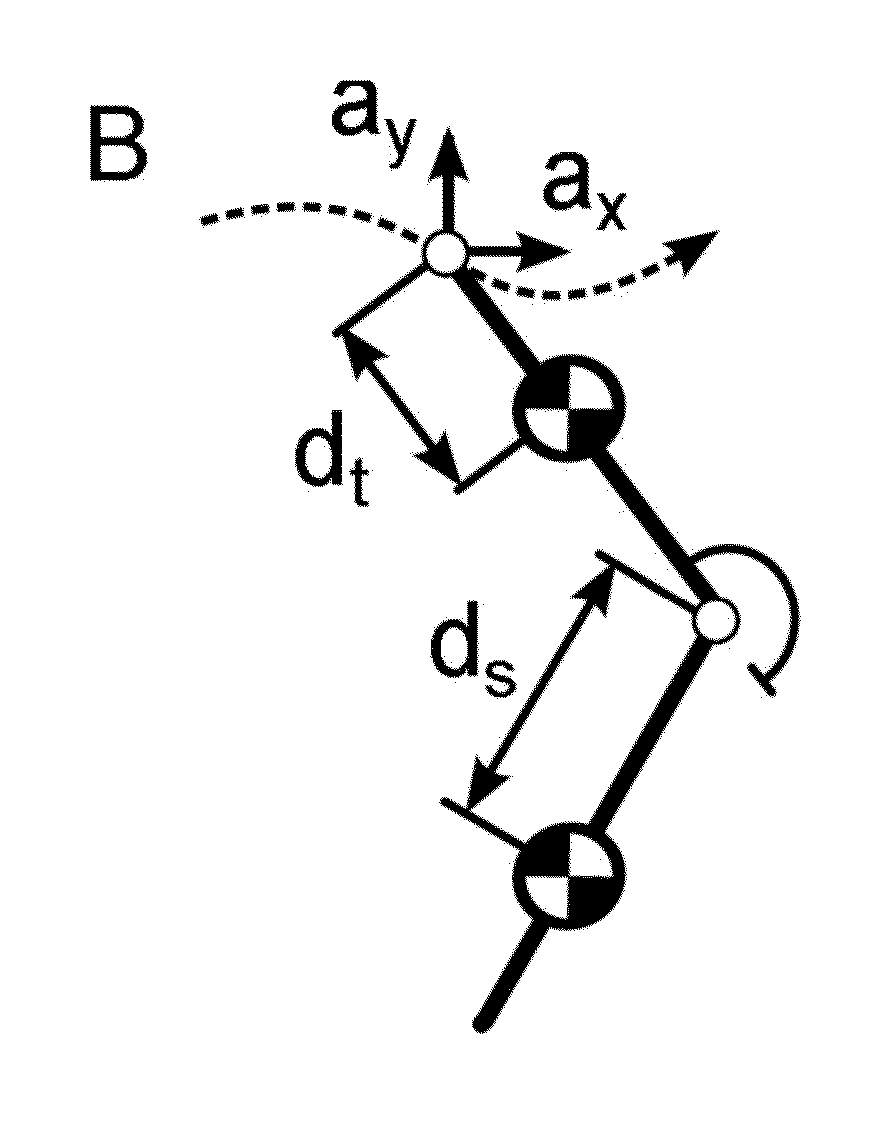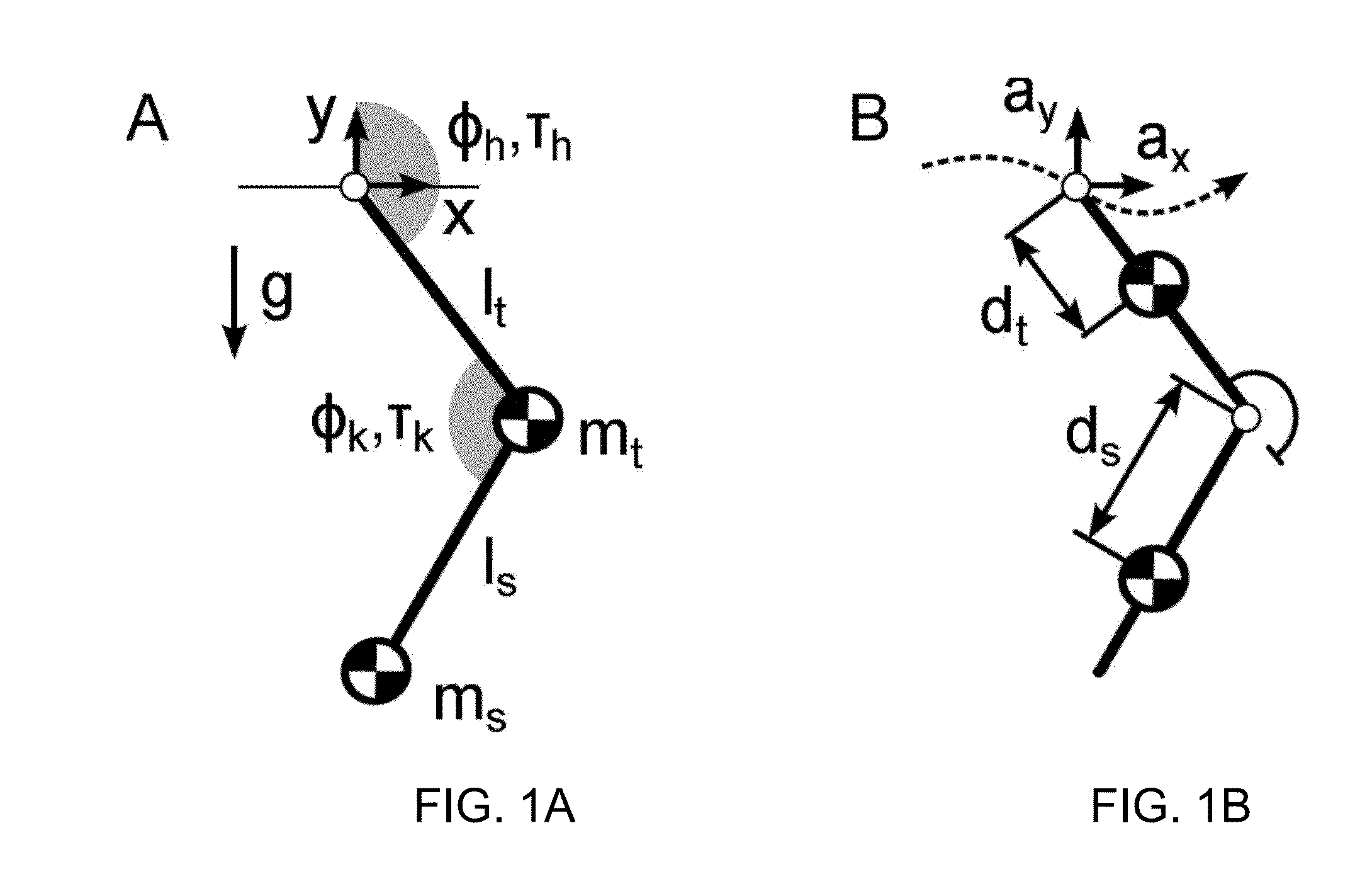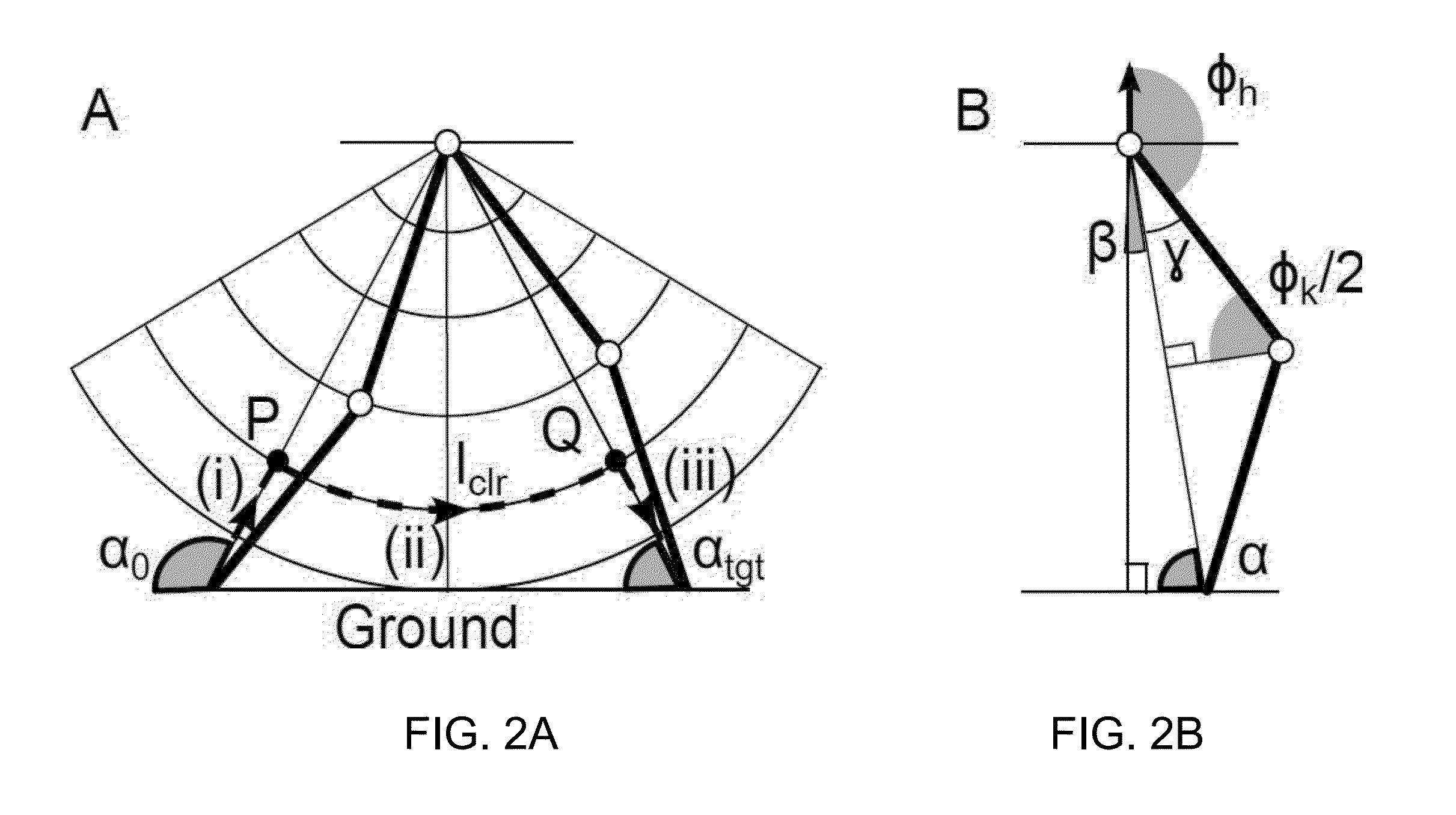Robust swing leg controller under large disturbances
a swing leg controller and large disturbance technology, applied in the field of large disturbances of swing leg controllers, can solve the problems of limiting the application of this approach to powered prosthetic limbs which replace only part of the human body, revealing the segmented legs of humans and humanoids, and not being able to achieve dynamic balance dynamically
- Summary
- Abstract
- Description
- Claims
- Application Information
AI Technical Summary
Benefits of technology
Problems solved by technology
Method used
Image
Examples
Embodiment Construction
[0035]Swing Leg Model
[0036]In human and humanoids, leg placement is largely achieved by the motion of the hip and knee while the ankle contribution can be neglected. To develop intuition about the control strategies for swing leg placement, the classic double pendulum with the thigh and shank represented as massless rods of lengths lt and ls with point masses mt and ms attached to their ends was used in one embodiment (FIG. 1A). The hip is connected to an immovable trunk at the origin of the world frame, and the joint angles φh and φk are measured as shown in FIG. 1A. The resulting equations of motion are:
((mt+ms)lt−msls cos φk)lt{umlaut over (φ)}h=τh+τk−msltls cos φk{umlaut over (φ)}k+mslslt sin φk({dot over (φ)}k−{dot over (φ)}h)2+(mt+ms)ltg sin φh (1)
msls2{umlaut over (φ)}k=τk+msls(ls−lt cos φk){umlaut over (φ)}h+mslslt sin φk{dot over (φ)}h2−mslsg sin(φk−φh) (2)
[0037]for the hip and knee, respectively, where τh and τk are the applied hip and knee torques.
[0038]In addition to t...
PUM
 Login to View More
Login to View More Abstract
Description
Claims
Application Information
 Login to View More
Login to View More - R&D
- Intellectual Property
- Life Sciences
- Materials
- Tech Scout
- Unparalleled Data Quality
- Higher Quality Content
- 60% Fewer Hallucinations
Browse by: Latest US Patents, China's latest patents, Technical Efficacy Thesaurus, Application Domain, Technology Topic, Popular Technical Reports.
© 2025 PatSnap. All rights reserved.Legal|Privacy policy|Modern Slavery Act Transparency Statement|Sitemap|About US| Contact US: help@patsnap.com



